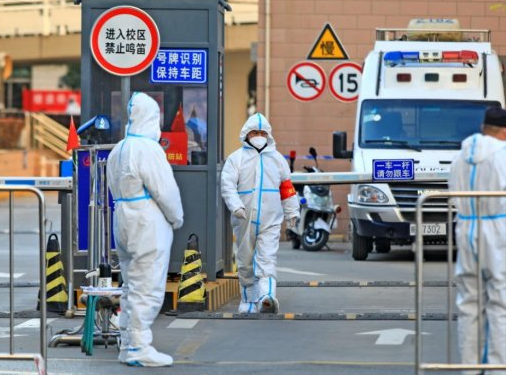Beijing: Empty streets, deserted shopping centers, and residents staying away from one another are the new normal in Beijing — but not because the city, like many Chinese ones before it, is under a zero-Covid lockdown, the media reported.
This time, it’s because Beijing has been hit with a significant, and spreading, outbreak — a first for the Chinese capital since the beginning of the pandemic, a week after leaders eased the country’s restrictive Covid policy, CNN reported.
The impact of the outbreak in the city was visible in the upmarket shopping district Sanlitun on Tuesday. There, the usually bustling shops and restaurants were without customers and, in some cases, functioning on skeleton crews or offering takeout only, CNN reported.
Similar scenes are playing out across Beijing, as offices, shops and residential communities report being understaffed or shifting working arrangements as employees fall ill with the virus. Meanwhile, others stay home to avoid being infected.
One community worker told CNN that 21 of the 24 workers on her Beijing neighbourhood committee office, tasked with coordinating residential matters and activities, had fallen ill in recent days.
“As our superiors are mostly infected, there’s not much work being given to us,” said the employee, Sylvia Sun. “(The usual) events, lectures, performances, parent-child activities will definitely not be held.”
Beijing, which prior to the new rules was already experiencing a small-scale outbreak, is now on the front lines of a new reality for China: not since the early days of the pandemic in Wuhan have Chinese cities dealt with an outbreak without hefty control measures in place.
But for a place that until earlier this month assiduously tracked every case, there is now no clear data on the extent of the virus’ spread. China’s new Covid rules significantly rolled back the testing requirements that once dominated daily life, and residents have instead shifted to using antigen tests at home, when available, leaving official numbers unreliable, CNN reported.
IANS






































